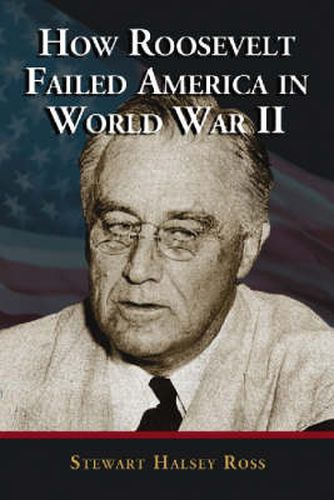Readings Newsletter
Become a Readings Member to make your shopping experience even easier.
Sign in or sign up for free!
You’re not far away from qualifying for FREE standard shipping within Australia
You’ve qualified for FREE standard shipping within Australia
The cart is loading…






This title is printed to order. This book may have been self-published. If so, we cannot guarantee the quality of the content. In the main most books will have gone through the editing process however some may not. We therefore suggest that you be aware of this before ordering this book. If in doubt check either the author or publisher’s details as we are unable to accept any returns unless they are faulty. Please contact us if you have any questions.
The year 1917 found most of the world - including the United States - reeling from the effects of war. By the end of World War I, most Americans had vowed never again to become involved in European problems. In 1935, with war between Germany and Britain increasingly imminent, this stance was formalized. Congress passed the first Neutrality Act, which was not only designed to keep America out of foreign wars, but also called for the president to declare an immediate embargo of arms and munitions to all belligerent countries. This, however, ran contrary to the war policy of President Franklin D. Roosevelt. Convinced that the Allies could not win their war against Germany without American intervention, Roosevelt began a series of subtle attempts to motivate America’s entry into World War II. Focusing on the period 1940 to 1945, this work examines a number of political maneuvers and events, which the author sees as Franklin D. Roosevelt’s blatant attempt to propel the United States into an active role in World War II. Covert submarine warfare against German vessels, U.S. naval repair of British war ships, American air patrol of the North Atlantic and coordination between U.S. and British navies are all sited as proof of Roosevelt’s real intentions with regard to American involvement in the war. Roosevelt’s policy of
unconditional surrender,
which ultimately cost additional lives, and his ill-advised decision to seek a fourth term are considered as further evidences of FDR’s deceptions and ultimate disregard for his country’s welfare. Appendices provide a basis for comparison of Woodrow Wilson’s and Roosevelt’s administrations through the Zimmerman Telegram of 1917 and Wilson’s Fourteen Points from 1918. In addition, these addendums contain contemporary 1940s documents, such as the Atlantic Charter, the United Nations Declaration and the Potsdam Declaration. The work is also indexed.
$9.00 standard shipping within Australia
FREE standard shipping within Australia for orders over $100.00
Express & International shipping calculated at checkout
This title is printed to order. This book may have been self-published. If so, we cannot guarantee the quality of the content. In the main most books will have gone through the editing process however some may not. We therefore suggest that you be aware of this before ordering this book. If in doubt check either the author or publisher’s details as we are unable to accept any returns unless they are faulty. Please contact us if you have any questions.
The year 1917 found most of the world - including the United States - reeling from the effects of war. By the end of World War I, most Americans had vowed never again to become involved in European problems. In 1935, with war between Germany and Britain increasingly imminent, this stance was formalized. Congress passed the first Neutrality Act, which was not only designed to keep America out of foreign wars, but also called for the president to declare an immediate embargo of arms and munitions to all belligerent countries. This, however, ran contrary to the war policy of President Franklin D. Roosevelt. Convinced that the Allies could not win their war against Germany without American intervention, Roosevelt began a series of subtle attempts to motivate America’s entry into World War II. Focusing on the period 1940 to 1945, this work examines a number of political maneuvers and events, which the author sees as Franklin D. Roosevelt’s blatant attempt to propel the United States into an active role in World War II. Covert submarine warfare against German vessels, U.S. naval repair of British war ships, American air patrol of the North Atlantic and coordination between U.S. and British navies are all sited as proof of Roosevelt’s real intentions with regard to American involvement in the war. Roosevelt’s policy of
unconditional surrender,
which ultimately cost additional lives, and his ill-advised decision to seek a fourth term are considered as further evidences of FDR’s deceptions and ultimate disregard for his country’s welfare. Appendices provide a basis for comparison of Woodrow Wilson’s and Roosevelt’s administrations through the Zimmerman Telegram of 1917 and Wilson’s Fourteen Points from 1918. In addition, these addendums contain contemporary 1940s documents, such as the Atlantic Charter, the United Nations Declaration and the Potsdam Declaration. The work is also indexed.